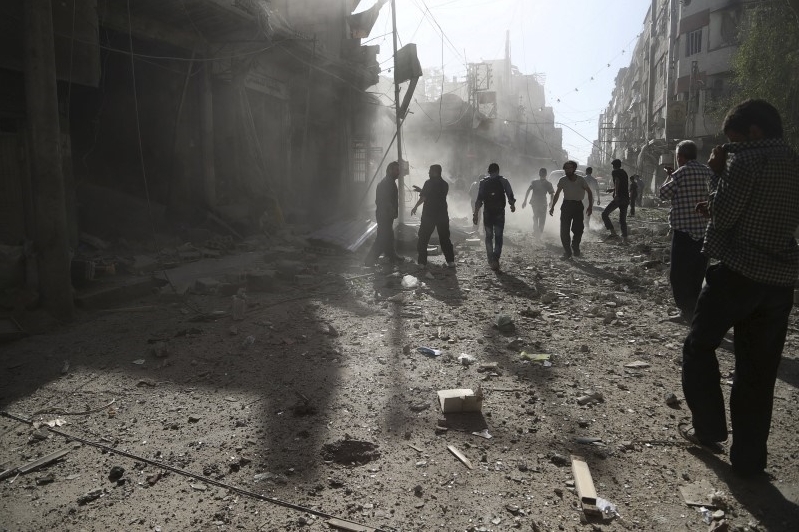
LONDON (Reuters) - Britain's new opposition Labour Party leader Jeremy Corbyn faces a revolt over air strikes on Syria, nine days after the left-winger was elected on a platform that opposed military intervention in the region.
Half of Corbyn's top team of ministers-in-waiting were prepared to back a call from Prime Minister David Cameron to sanction bombing against Islamic State (IS) militants in Syria, the Sunday Times said.
The government said last week it would try to reach a consensus on extending British involvement in coalition air strikes against IS from Iraq to Syria.
Labour's foreign affairs spokesman Hilary Benn said on Sunday the party would examine any proposals to try to bring an end to the fighting.
"We have said consistently if the government has a proposition, we need to look at what it is: What is the target, the objective? What is the legal base? What is the view of nations in the region, including the government of Iraq?," he said on BBC TV's Andrew Marr show.
Benn sidestepped a question on endorsing air strikes, saying a broad approach was needed to resolve the conflict, including more humanitarian aid and a push for a political settlement.
A member of the shadow cabinet top team told the Sunday Times that half of the group were prepared to back bombing IS targets if Cameron presented a coherent strategy.
Four out of Labour's five foreign affairs team were expected to support further military action, including Benn, the newspaper said.
Corbyn, a veteran anti-war campaigner who has argued that Britain should NATO and has cast militant groups in the Middle East as friends, won the support of nearly 60 percent of party members who voted in the leadership election.
He has faced a barrage of criticism from some parts of the media in recent days over his political stance, which is far to the left of the former Labour governments of Tony Blair and Gordon Brown.
He resigned as chairman of the "Stop the War Coalition" campaign group on Saturday, hours after it published a poem that said Queen Elizabeth II had a "criminal record" and was "lubricating Britain's wars".
Corbyn, however, did not criticize the poem, instead telling the group it "represented the very best in British political campaigning", according to a message published on its website.
Separately on Sunday, Corbyn said that if he became prime minister in 2020, he would start renationalizing Britain's rail network by putting back under public control the five out of 16 franchises that expire in the next parliament.
(Reporting by Paul Sandle; Editing by Tom Heneghan)






